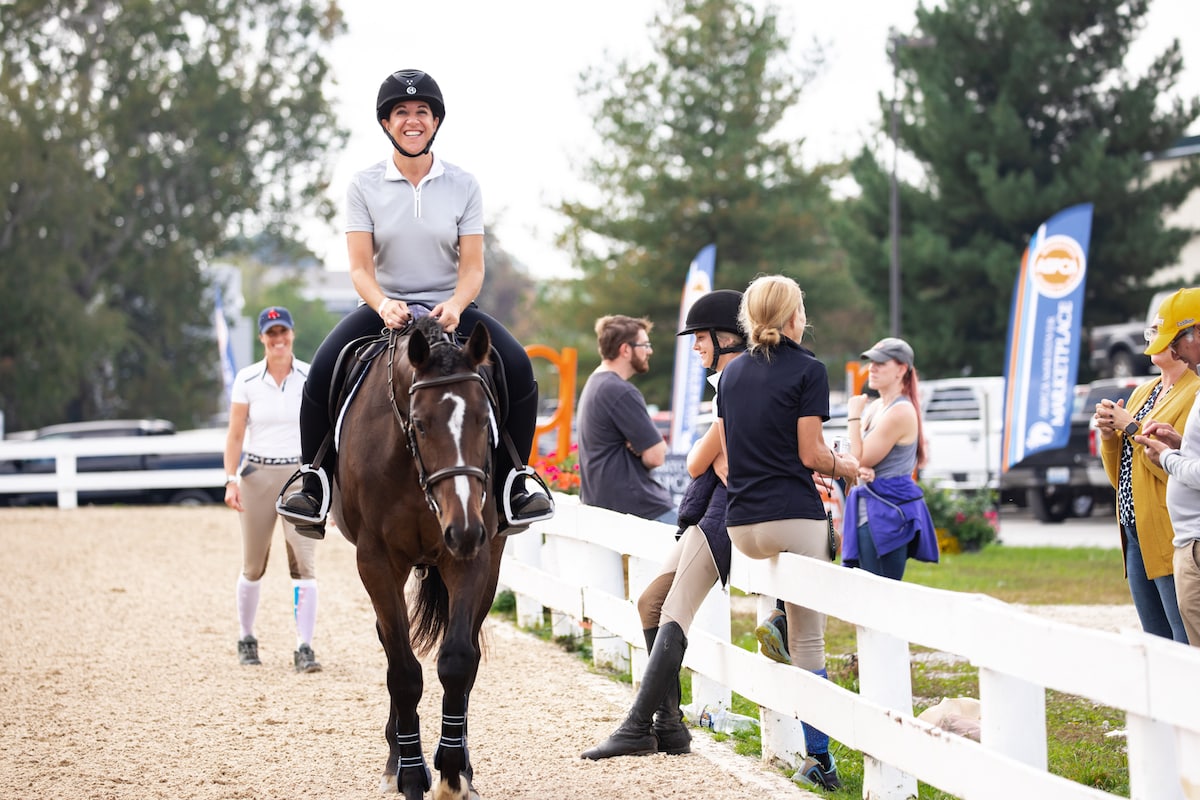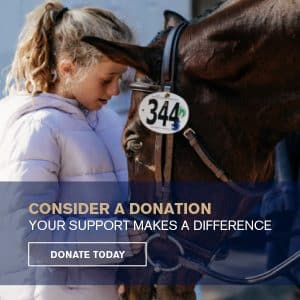
Bethany P Photography
While horses are still bought and sold with handshake deals, it’s always a good idea to protect buyer, seller, and horse with a more formal transfer of ownership. Here are the steps in a sale that both buyer and seller can reasonably expect, plus downloadable documents that will protect all parties — especially the horse.
Trial Rides: Especially for horses purchased directly from the track via listing agent or service, it’s not uncommon for horses to be bought sight-unseen by the purchaser. Some resellers also move horses so quickly, especially those relatively new off the track that have not had many retraining rides, that they may sell to buyers who only saw an online listing.
Resellers or non-profit aftercare adoption organizations with horses further along in retraining should allow or even require trial rides at their facilities to ensure a good match.
Pre-Purchase Exams: Pre-purchase exams (often referred to as PPEs) are fact-finding missions by a veterinarian to inform a buyer of the physical condition of a horse. A PPE is generally advisable, especially for a horse whose entire medical history is unknown or undisclosed, or a horse is changing careers (i.e. going from flat racing to jumping). However, the point of a PPE is not to “pass or fail” a horse, but to collect information about his overall physical well-being. (Read this article for more information about common track injuries and how they may or may not affect a second career.)
Bill of sale/adoption contract: A bill of sale typically includes basic language to protect both buyer and seller, and serves as a document to establish ownership of the horse — especially important if registration papers are not available. Non-profit aftercare adoption organizations will furnish their own contracts with their own specific policies regarding resale, return of horse to facility, breeding, and other points of concern.
Refusal of resellers or adoption organizations to use a bill of sale or adoption contract should be considered a red flag. If a reseller or organization does not have a bill of sale available, the RRP has made one available free of charge! Download a free Bill of Sale here: PDF or MS Word
Jockey Club’s Retired From Racing form: If a horse is being sold off the track with intention to go into a second career, the Jockey Club’s Retired From Racing form will protect that horse from ever being entered to race again. If an attempt is made to enter a horse in North America who has had this form submitted, information on the horse’s retired from racing status is communicated electronically to racing officials. Both buyers and sellers of horses coming off the track can request that this form be completed and submitted to protect the horse from ever racing again if that is the intention of the sale. Download the Retired From Racing form here.
Jockey Club registration papers: Having possession of a horse’s registration papers is the most common way to establish ownership in the equestrian industry. However, that sense of possession is not the same in the racing industry. Buyers should always ask for papers and emphasize the use of the Retired From Racing form to protect a horse from returning to the track, but should also be prepared for the seller not to furnish those papers on request.


